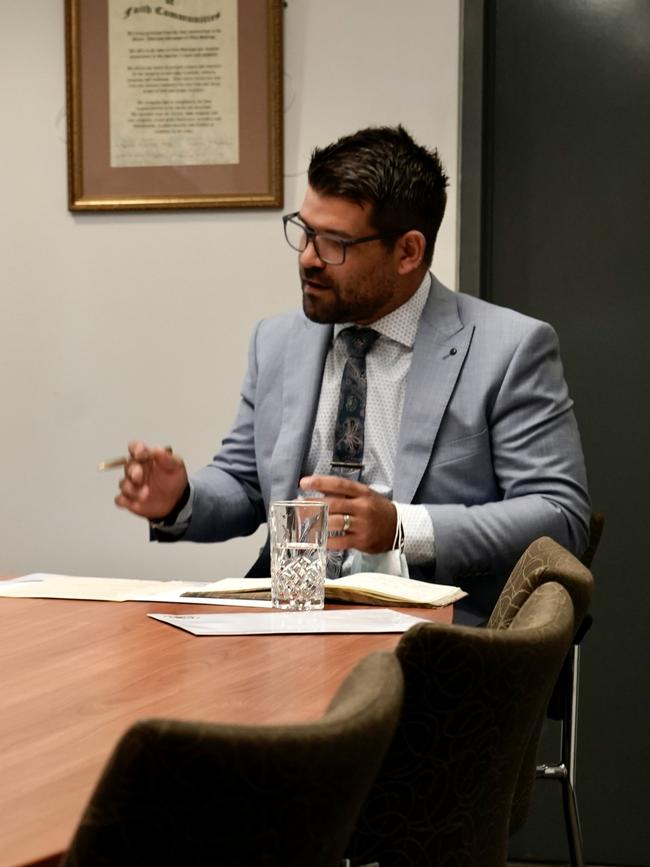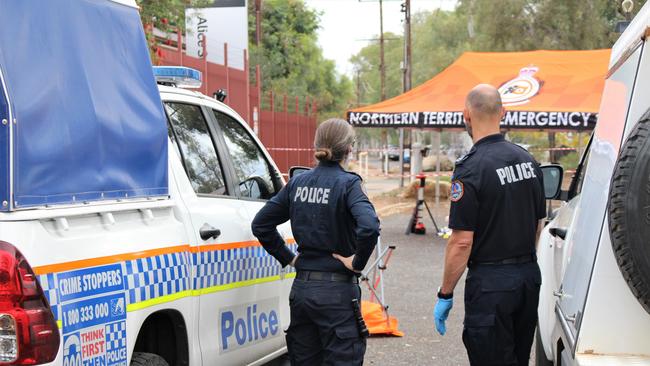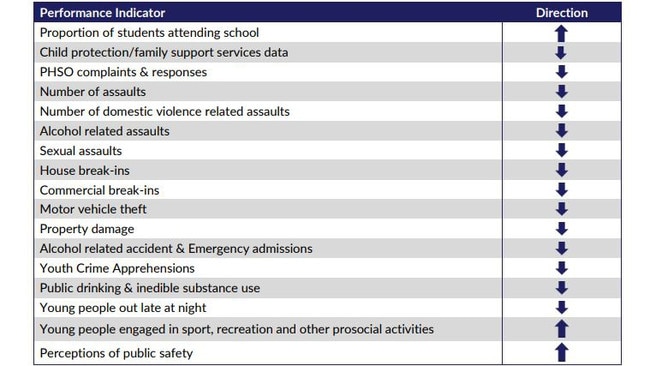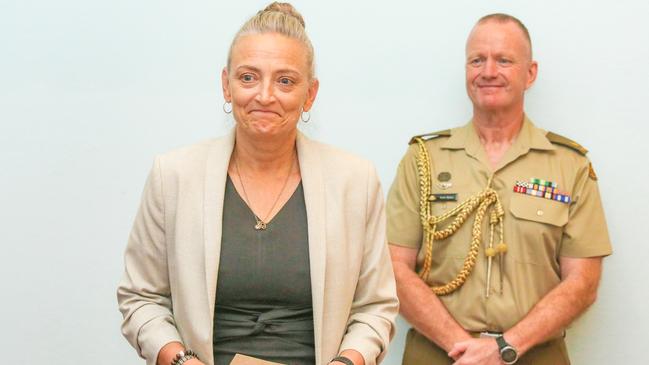Mparntwe, Alice Springs Social Order Response Team reveals full 39-point plan to address ‘crime crisis’
A Central Australian town in the midst of a ‘crisis’ has developed a 39-point plan to address crime, with some novel solutions on the table. See how their plan could be replicated across the NT.
Alice Springs
Don't miss out on the headlines from Alice Springs. Followed categories will be added to My News.
Broken glass, metal shutters, bars across windows.
This is not the future the heart of Central Australia wants but it is their reality today.
Alice Springs Mayor Matt Paterson has described his home as a town in “crisis”.
“There have been plenty of words thrown around that try to describe our current situation — crisis, emergency, chaos,” Mr Paterson said.
“All of them are true.”
In the past 12 months assaults, break-ins, vehicle thefts and property damage have shot up.
August police data shows an Alice Springs resident was twice as likely to be the victim of crime compared to the rest of the Territory and 2.6 times more likely to suffer a property crime.
But over the next year the town hopes to change its image from the self-described ‘crime capital’ and restore its reputation as the jewel of the desert.
Since October the Mparntwe, Alice Springs Social Order Response Team (SORT) Implementation Council has been working fortnightly to address family dysfunction, crime and anti-social behaviour.

The 39-point plan with a $2.5m funding pool brings in councillors, government agencies, businesses, social services and even footy teams to address each service gap that allows a person to turn to crime.
SORT identified anti-social behaviour, public drinking, substance abuse, domestic and family violence, school attendance, vandalism, illegal camping and late-night venue safety as the eight main issues.
The plan develops existing traditional crime fighting tools, including ongoing co-ordinated patrols and a centralised CCTV monitoring team expected by March 2023.
But out-of-the-box solutions are also proposed, including wifi hubs in public places and Town Camps, AFL games in communities, after-hours bus services, structured camping options for rough sleepers and a pilot program to lockdown the CBD to all vehicle except taxis to the mall.

Members of SORT say a key metric was identified as fewer kids out late at night and more children in school.
Kids in remote Central Australia are 12 per cent less likely to be enrolled compared to Darwin children, according to Department of Education 2021 data.
For Aboriginal Central Australians this drops by a further 12 per cent, with nearly a third of Indigenous kids not enrolled in school.
The SORT have called for measures to get kids back in the classrooms, on the footy fields, in holiday programs or using their voices in youth-led advocacy forums.

The plan also committed to finalising the annual Alice Springs Youth Action Plan for 2023, which like the Darwin plan has not been updated since 2019.
The region has also called for a review into youth diversion, including bringing Lhere Artepe Aboriginal Corporation into the panel contract for restorative Youth Justice Conference by March 2023.
“Youth Diversion programs for Central Australia (will be) streamlined, regionalised and funding reviewed with a view to increased funding for MacDonell Regional Council,” it said.

While the fortnightly meeting minutes are not publicly available, SORT will report monthly on implementation progress and provide quarterly updates to the Cabinet.
Police Minister Kate Worden said the community-led crime think-tanks were already being replicated in Darwin’s Northern Suburbs.
Her office said a cross-agency team was working with local businesses, non-government agencies and other stakeholders across the Casuarina Precinct, Karama, Malak and the Hibiscus and Northlakes Shopping Centre areas.
“(It is) to ascertain what’s working, where improvements can be made, where service delivery gaps exist and what additional resources are required to solve these complex social issues,” Ms Worden’s office said.
The initial Darwin SORT team have already identified seven issues: anti-social behaviour, grog running, public drinking, school attendance, community amenity, illegal camping and domestic, family and sexual violence.





